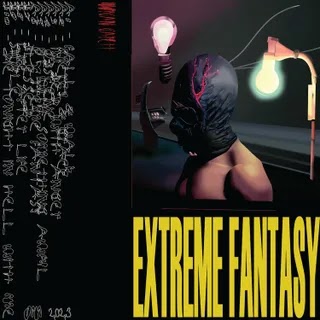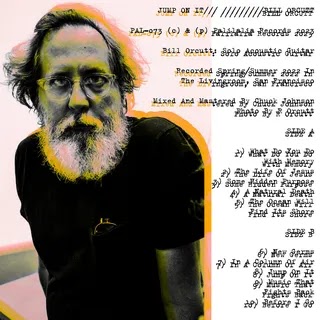The Brooklyn singer-songwriter’s music is measured, slow, and focused, allowing space for complex emotions to bloom.
Any digital native worth their salt knows that the most effective tool for checking up on one’s ex is not Facebook or Insta or even finsta. It’s Venmo, where unguarded users drop emoji-riddled breadcrumb trails to who they’re spending time with. On “Horrible Person,” a highlight of her new record, Greenhouse, the 32-year-old Brooklynite Caitlin Pasko finds herself on the receiving end of such unwanted scrutiny. “Please stop texting me...When you see that I’ve moved on/After looking me up on Venmo,” she sings.
There is a certain grim humor in the idea of human relationships being distilled to a string of mundane transactions, but if this lyric sounds like a droll punch line, it’s one delivered with an exceptionally straight face. So is the blunt assertion that gives the song its title: “You know you are a horrible person/I shouldn’t have to explain it to you.” Across Greenhouse, Pasko rejects and moves on from the emotional labor demanded by a manipulative partner—the sort of person who prefers digging up painful memories to being forgotten, who feigns innocence when confronted with their faults.
Pasko’s delivery minimizes her words’ humorous potential; rather than make a quick joke of someone else’s awfulness, she holds space for a more vulnerable response, letting her words linger without disrupting their tension. “Walking is hard/When you have to lift your legs, your quadriceps,” she sings on “Unwell,” a song about fighting to meet a baseline of human functionality. Songwriting is also hard. Pasko’s lyrics call attention to the procedure of taking a step; meanwhile, her sparse arrangement invites us to consider the mechanics of every chord change. Right foot, left foot, right foot. A major, E minor, D major.
Measured and effortful, with minimal instrumentation—piano chords and drones, largely—Greenhouse is a record that rewards patience and focus. Pasko tends to interrupt herself by breathing mid-phrase, to let her sentiments balloon out across many measures, requiring listeners to lock in for extended periods of time in order to derive meaning from her words. But in spite of their slow speed—and sometimes even because of it—her sharpest lines can induce whiplash. On “Quiet Weather,” she sings, “When I think of you, I take a sho–,” drawing out the vowel. Your brain might autofill a “t” to finish the protracted word, thinking she’s reaching for a liquid cure for heartache. But the real lyric is much more gruesome, and startling when she gets to it: “I take a sho–vel to my chest, and dig as deep as I can get.” There’s much talk about diaristic songwriters who self-excavate; usually, they aren’t quite so literal about it.
The shovel is a fitting tool for Pasko. Greenhouse is named for a structure that preserves plant life; on “To the Leaves,” she imagines one erected inside her body to protect her mind. Pasko’s affinity for the natural world is laced into the imagery she often reaches for: A peach in the leaves, a lake, the sun, snowfall. But even more than nature’s symbols, she invokes its processes of recovery and replenishment. “Today I thought about how it must feel to give birth/And to look in the eyes of yourself,” she muses, her own voice twinning itself, drawing out the idea of regeneration. Elsewhere, she realizes that “that growth and letting go are so complexly intertwined.” As any gardener knows, you have to prune away dead leaves to make room for new buds.
This emphasis on growth is particularly pronounced on the back half of Greenhouse, giving it a narrative arc even while many of the specifics remain out of focus. “Ooo Happy,” a brief interlude on which Pasko’s light soprano bobs like a kite catching a breeze, proves pivotal in this respect: It serves as a bridge between the record’s more somber opening and more generative conclusions. Remember Pasko’s struggle with her legs? On the second half of the album, a version of the same scene recurs. “Today I spent my time/Walking around a neighborhood that's not mine,” she sings in the earlier iteration; “Today I remembered/What it feels like to go walking/… In a city that's not my city,” in the later one. Feeling separates the second instance from the first; it signals an opening up to the possibility of sensation and discovery, where before she was just miserably marking minutes. It’s a quiet sort of progress that doesn’t call attention to itself—but meaningful, all the same.
















0 comments:
Post a Comment